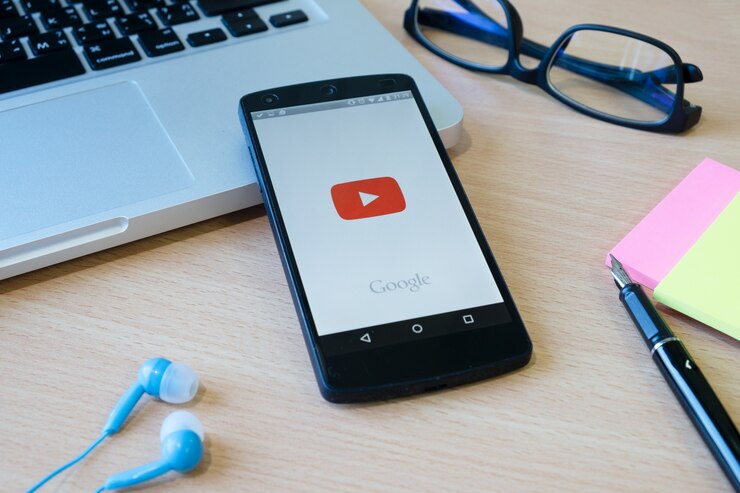In the digital era, music consumption has evolved rapidly. From vinyl records and CDs to streaming services, users now have access to a vast amount of audio content on various platforms. One trend that has emerged with the growth of YouTube is the use of YouTube-to-MP3 converters, commonly referred to as “YTMP3” services. These converters allow users to extract audio from YouTube videos and save them as MP3 files for offline listening. This article delves into what YTMP3 converters are, how they work, the benefits they offer, legal concerns, and the potential risks involved.
What is YTMP3?
It is an umbrella term for online platforms or software tools that convert the audio track of YouTube videos into MP3 format. YouTube is one of the largest video-sharing platforms globally, containing an extensive collection of music, podcasts, interviews, lectures, and more. Many users turn to YTMP3 tools to download audio from these videos for convenience, allowing them to listen offline without needing a YouTube Premium subscription.
Popular YTMP3 websites and software tools promise fast, free, and easy conversion. Users typically paste a YouTube video link into this tool, select the desired audio quality (e.g., 128 kbps or 320 kbps), and download the resulting MP3 file to their device.
How Do YTMP3 Converters Work?
YTMP3 converters follow a relatively straightforward process:
- Link Extraction: Users copy a YouTube video URL they want to convert.
- Processing: This tool extracts the audio stream from the video and converts it into an MP3 file.
- Download: After conversion, users receive a download link to save the MP3 file.
Thanks to automated systems, many of these services claim to complete the conversion process within seconds. Some advanced tools even allow batch downloads or the option to convert videos into different formats, such as WAV or M4A.
Advantages of Using YTMP3 Services
YTMP3 converters offer several appealing benefits, which explain their popularity among internet users:
- Offline Access: One of the biggest motivations for using it is the ability to access content offline. This is especially helpful when traveling or in areas with limited internet connectivity.
- No Ads or Interruptions: Listening to music downloaded through it eliminates YouTube’s ads and buffers interruptions, offering an uninterrupted audio experience.
- Convenience and Simplicity: These tools are usually easy to use, requiring only a video link and a couple of clicks to download the MP3.
- Cost-Effective: Users can enjoy their favorite tracks without paying for YouTube Premium or other streaming subscriptions.
- Access to Unique Content: Some audio content, such as podcasts, remixes, or covers, is only available on YouTube. These tools enable users to access such content conveniently.
Legal and Ethical Considerations
Despite their advantages, YTMP3 services operate in a legal gray area. In most jurisdictions, downloading copyrighted content without the owner’s permission is considered illegal. While it may seem harmless to download a few songs for personal use, such actions can violate YouTube’s Terms of Service and intellectual property laws.
YouTube is governed by strict copyright policies that require creators to be compensated for their work through ad revenue or streaming services. Users bypass the monetization system by converting videos into MP3s, denying content creators of their rightful earnings.
Some YTMP3 services claim to offer “fair use” conversions, especially for public domain content or videos uploaded with Creative Commons licenses. However, distinguishing between legal and illegal content can be challenging for the average user. The music industry, including organizations like the Recording Industry Association of America (RIAA), has taken active steps to shut down popular YTMP3 services, arguing that they infringe copyright laws.
Risks Associated with YTMP3 Usage
In addition to legal issues, YTMP3 users face several risks:
- Malware and Viruses: Many YTMP3 websites are loaded with intrusive ads and may redirect users to malicious websites. Some tools could install spyware or malware on a user’s device.
- Data Privacy Risks: Unsecured YTMP3 services can expose personal data, such as IP addresses and browsing habits, to potential misuse.
- Poor Audio Quality: Some YTMP3 tools offer low-quality audio conversions, which may not match the original sound quality on YouTube.
- Website Shutdowns: Many YTMP3 services are regularly taken down due to legal action, leaving users searching for alternatives.
- Misleading Ads and Pop-ups: Aggressive advertising campaigns often support free services, which can frustrate users and lead to unintended downloads.
Alternatives to YTMP3 Converters
For those looking for legal and safer ways to enjoy offline audio content, there are several alternatives:
- YouTube Premium: A subscription service that allows users to download videos and music from YouTube for offline use without ads.
- Spotify, Apple Music, and other streaming services: These platforms provide access to millions of songs, podcasts, and audiobooks, often with offline listening options.
- Public Domain Websites: Websites like Internet Archive and Jamendo offer free, legal music and audio content downloads.
- Creative Commons Content on YouTube: Some YouTube creators upload music with Creative Commons licenses, allowing users to download and use the content legally.
Conclusion
While YTMP3 converters offer a convenient way to access audio from YouTube videos, they come with significant legal and ethical challenges. Users must be aware of the potential consequences, including copyright infringement and the risk of malware. With legal alternatives such as YouTube Premium and music streaming services, exploring safer options for enjoying audio content is advisable.
Ultimately, YTMP3 services reflect the tension between user convenience and intellectual property rights. As the digital landscape continues to evolve, finding a balance between accessibility and fair compensation for creators will remain crucial. Users should be mindful of their choices and strive to sustainably support artists and content creators.




0 Comments